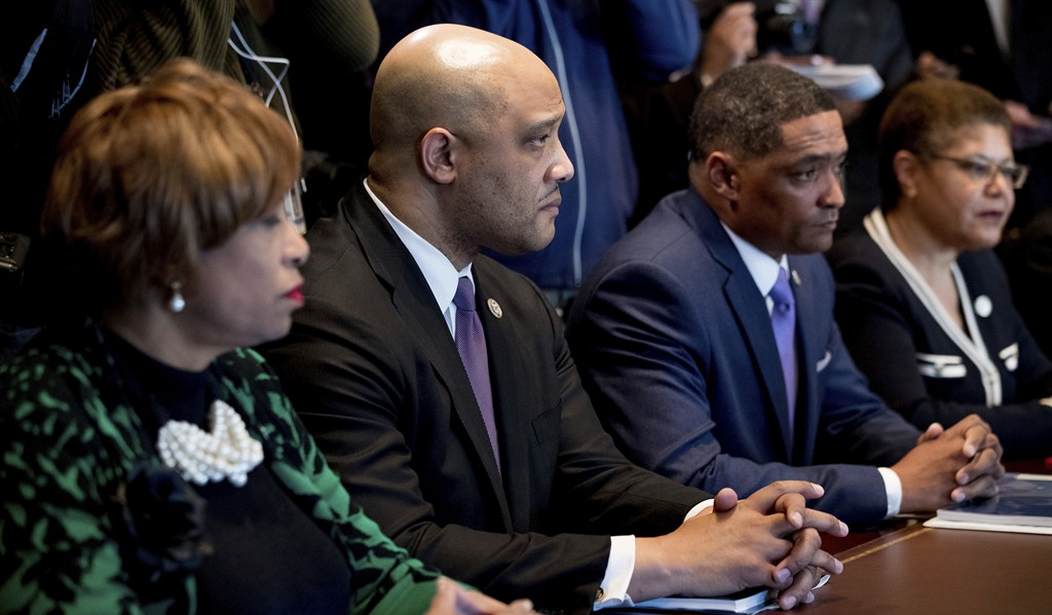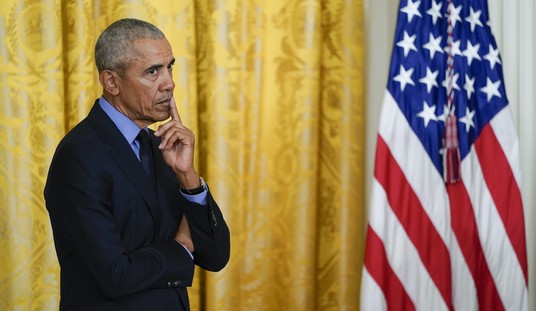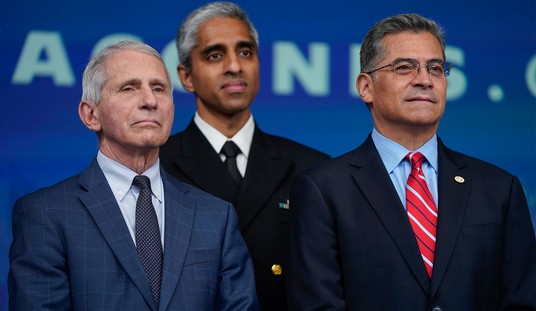Last week, we examined the long-awaited report from the Pentagon’s UAP Task Force, describing nearly 150 “incidents” of military encounters with Unidentified Ariel Phenomena or UFOs. Out of the entire batch they studied over a period of years, they were only able to write one of them off as a known, terrestrial object. (A downed weather balloon.) The rest remain unidentified, with many of them exhibiting “unusual flight characteristics” suggesting technology that we can’t duplicate. A much larger, classified report was delivered to the Intelligence and Armed Services Committees in Congress.
So what happens next? Immediately after the reports were delivered, orders went out to develop a more permanent and better-funded program to replace the UAP Task Force. Task forces in the government are temporary by nature, though some can last for years if not decades, but the new program should have its own offices and staffing for this ongoing effort. Yet not all of the action will remain behind closed doors, at least if Congressman Andre’ Carson (D – Indiana) has his way. He’s calling for congressional hearings on UFOs to determine how we’ll get to the bottom of this. And while some hearings will no doubt be classified in nature and closed to the press, he would like some public hearings as well. (The Hill)
Rep. André Carson (D-Ind.), chairman of the House Intelligence subcommittee on Counterterrorism, Counterintelligence and Counterproliferation, is calling on Congress to hold a “series of hearings,” on reported UFOs following last month’s highly anticipated release of an intelligence report on the subject.
The congressman said in an interview Sunday on CBS’s “Face the Nation” that because the newly unclassified report on UFOs, referred to by the Pentagon as “unidentified aerial phenomena” (UAP) was largely “inconclusive” on the origins of more than 140 objects, additional probes are needed.
“My hope… is that we will have a series of hearings and, possibly, a public hearing in the very near future,” Carson said, though he did not give a specific timeline.
Something has spurred Carson to take up the battle cry on this issue and we can hazard a pretty good guess what it was. As I mentioned above, while the public report was only nine pages long, a classified version of the report prepared for Congress was supposedly ten times as long. Given his position on the House Intelligence Committee and the sensitive subcommittee he chairs, Carson would have seen that report. Off-the-record sources have been describing the reactions of some of the members as being rather “stunned” by whatever it was that they saw.
Congressman Carson clearly feels that “there’s a there, there” and wants some action taken. He also admirably appears to feel that the public has a right to know what’s going on and should be made aware of any information that wouldn’t compromise our intelligence community’s methods and sources.
What exactly might we learn from such hearings? Thus far all we’re getting from the Pentagon is a lengthy version of “we don’t know.” But that answer isn’t going to go over very well. It’s their job to know who or what is flitting around in our restricted airspace and over our military bases and nuclear weapons facilities. “We don’t know” isn’t going to cut it. But as numerous sources from that community have already said in multiple interviews, if this was the Russians or the Chinese, we should have already figured that out by now. And if we haven’t, it would represent a colossal intelligence failure.
But if it’s not part of one of our allied or adversarial military portfolios and it’s not ours, where do we go from there? The Department of Defense is already setting up new protocols to collect more data on these things and share it more efficiently across all of our service branches and intelligence agencies so the phenomena can be studied. That’s great, and perhaps we’ll learn a few more things than we now know about their performance characteristics. But would that ever get us any closer to answering The Big Question that nobody in Congress seems to want to say aloud yet? If these things weren’t built by any of the human actors here on our little blue marble… whose are they? Where did they come from? Unless we can get our hands on one, how are we supposed to figure it out?
That’s a question that Mark Whittington tried to tackle over at The Hill this weekend. Let’s just address the elephant in the room and hypothesize that the UFOs are indeed the product of some non-human intelligence from wherever. If that’s the case, they certainly don’t seem to be very interested in talking to us. But at the same time, they don’t seem all that concerned over whether or not we see them from time to time. Are they just rude or are the slightly clever monkey-people on this planet simply not worth wasting their time on?
A civilization that is capable of crossing the interstellar gulf would likely also have the technology to conceal its spacecraft from prying eyes. “Star Trek,” after all, posited a cloaking device as well as a warp drive. Indeed, contemporary aerospace stealth technology has become quite advanced.
Does the fact that the aliens (if these are aliens) don’t mind that we see them suggest that they want us to at least suspect they exist? For what purpose? To keep us on our toes?
Presuming that the hypothetical aliens are not hostile and, the speculations of the late Dr. Stephen Hawking aside, we have no reason to suspect they are, what is their ultimate purpose? Are they even going to establish first contact?
It’s maddeningly frustrating to think about, but if we really are dealing with beings or even some sort of artificial intelligence system that is vastly in advance of us and they have no interest in chatting, we may never get further than we are now in answering the question. I’ll close with one of my favorite quotes from the world of ufology that I’m sure I’ve mentioned before, but is very applicable here.
“I very much doubt that an intellectually inferior species can study an intellectually far superior species if the superior species chooses not to be studied.”
– Johns Hopkins University Astronomer Dr. Richard C. Henry in 1977








Join the conversation as a VIP Member